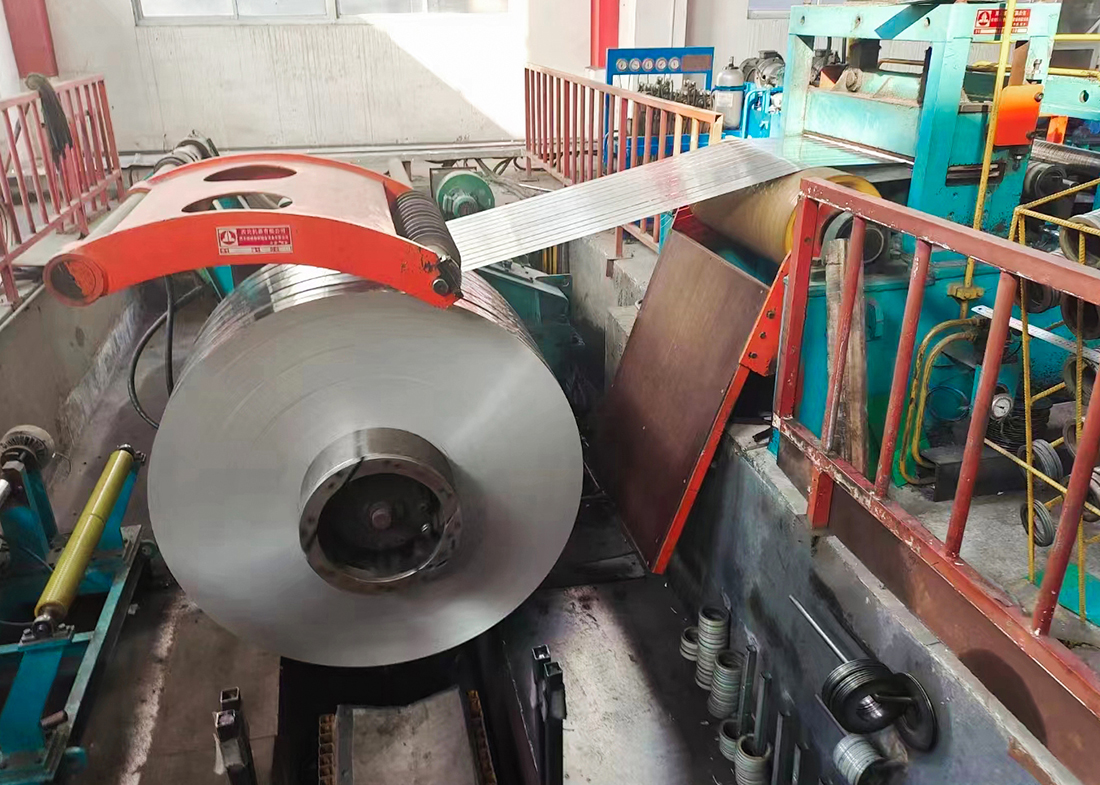
The application of stainless steel strip in the field of transportation
source:spmresult.com | Release time:2024年11月27日1. Automobile manufacturing
Automotive exhaust system: Stainless steel strips are widely used in the manufacturing of automotive exhaust pipes, mufflers, and other components due to their excellent high temperature resistance and corrosion resistance. For example, 409L stainless steel strip has good resistance to high temperature oxidation and corrosion, and can withstand the high temperature environment of automobile exhaust emissions, effectively extending the service life of the exhaust system.
Fuel tank: Some cars' fuel tanks are made of stainless steel strips, such as 304 stainless steel strips, which have good corrosion resistance and can prevent fuel from corroding the tank body, ensuring the safety and reliability of fuel storage
Engine fasteners: Some bolts, nuts, and other fasteners in the engine use stainless steel strip materials, such as 12Cr17Ni7 stainless steel strip. After cold processing, it can obtain high strength and meet the strength requirements of fasteners during engine operation
Car interior and exterior decoration: Stainless steel strips can also be used for car interior and exterior decoration, such as car trim, wheel covers, handrails, safety railings, etc., to beautify the appearance and improve the quality of the vehicle
2. Rail Transit
Manufacturing of subway vehicles: The 301L stainless steel used in rail transit produced by Taiyuan Iron and Steel has been applied in subway construction in multiple cities in China. This stainless steel strip has good strength, toughness, and corrosion resistance, and is suitable for manufacturing the body structure, panels, and other components of subway vehicles. It can reduce the weight of the vehicle, improve energy utilization efficiency while ensuring the structural strength of the vehicle, and does not require painting, reducing maintenance costs
High speed railway: Stainless steel also has important applications in the manufacturing of high-speed railway vehicles, such as key components such as chassis for high-speed trains. It has good mechanical properties, corrosion resistance, and lightweight characteristics, which can withstand complex mechanical stresses during train operation, resist severe weather and chemical erosion, extend chassis service life, reduce maintenance costs, and provide support for lightweight design of trains, improving operational efficiency and energy utilization efficiency
3. Shipbuilding
Ship structural components: Some ship structural components are made of stainless steel strips, such as 321 stainless steel strips, which have high strength, good toughness, and corrosion resistance. They can withstand the erosion of seawater and various stresses during navigation, ensuring the structural strength and stability of the ship
Ship equipment components: Many equipment components on ships also use stainless steel strips, such as valves, pipelines, pumps, and other components used to manufacture ships, to ensure their normal operation and service life in seawater environments
4. Aerospace
Aircraft components: Some aircraft structural components, skins, and other parts will use high-strength, corrosion-resistant stainless steel strips, such as 17-7PH stainless steel strips. It has the characteristics of high strength, high toughness, excellent corrosion resistance, and easy processing, which can meet the performance requirements of aircraft components in complex flight environments
Aircraft engine components: Some pipes, oil pipelines, and other components in aircraft engines are also made of stainless steel strips, such as special stainless steel seamless pipes, to ensure reliable operation of the engine under harsh conditions such as high temperature, high pressure, and high speed
5. Public transportation
Buses and long-distance buses: Stainless steel strips can be used to manufacture frames, skin structures, etc. for buses and long-distance buses. Its strong durability can significantly extend the service life of vehicles, while also providing designers with more possibilities to create innovative lightweight structures, compensate for the weight of additional safety and comfort equipment, increase payload and passenger capacity, improve energy efficiency, and reduce emissions.
prev:
Describe the material characteristics of stainles…
next:
What are the applications of stainless steel coil…
【Related articles】
【Related products】
+
 WeChat ID:spmresult.com
WeChat ID:spmresult.com

 WeChat ID:spmresult.com
WeChat ID:spmresult.com







 Add WeChat
Add WeChat
 Contact us
Contact us
 The phone
The phone